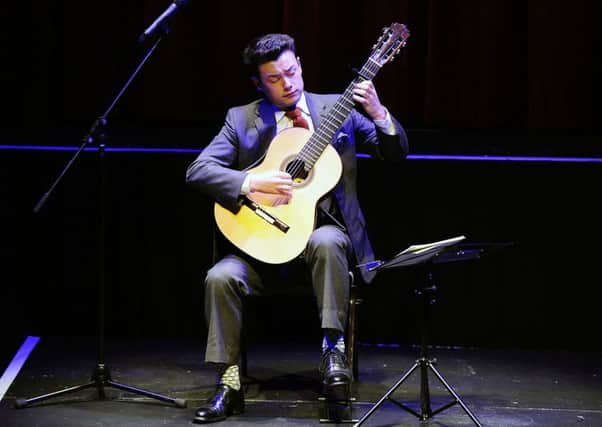Festival review: The Cumnock Tryst


The Cumnock Tryst ****
Various venues, Cumnock
Brabbins, it transpires, is as skilful with the pen as the baton. Both his short pieces – Prelude and Miniature No 1 – bore an instinctive sense of structural proportion, harmonic solidity and most importantly, a natural feel for the brass band idiom, which the svelte Dalmellington ensemble duly delivered.
But among the glowing sequence of expressive performances in Cumnock Old Church – works by Eric Ball, Howells, Mendelssohn and Holst – key attention fell on the latest new work by the young New Cumnock composer Jay Capperauld – As Above, So Below – commissioned especially by the Wallace Collection for this festival, whose players were spread around the balcony as a spectacular theatrical adjunct to the local band.
Advertisement
Hide AdAdvertisement
Hide AdBased on a 6th century text on the nature of the universe, Capperauld’s originality hits you instantly. Like a throbbing motor, the opening bars conjured up a sense of mystery and expectation, a sombre melody setting in motion the musical narrative, coloured by verbal chanting and brilliantly versatile playing.
Wallace’s quintet acted as a heavenly concertante, while the main band stoked a formidable momentum whose endpoint was both cataclysmic and, for all the right reasons, bonkers. Capperauld is fast acquiring a distinctive, at times acerbic, voice for himself.
Later on Saturday afternoon, conductor Eamonn Dougan put the Cumnock Tryst Chorus through its paces in Vaughan Williams’ Five Mystical Songs and Mozart’s ebullient Coronation Mass.
In three years this choir has developed a fiery unanimity that set the music alight. They oozed confidence, and, together with solo bass Andrew McTaggart in the Vaughan Williams, a quartet of young soloists from the Genesis Sixteen programme in the Mozart, and with organist Kevin Bowyer working magic on the modest Auchinleck Church organ, produced engaging performances all round.
The evening concert in St John’s Church, featuring Festival creator and director James MacMillan’s masterful 1990s’ setting of the Seven Last Words from the Cross, in which he conducted the joint forces of Westminster Cathedral Choir and the Scottish Ensemble, met all expectations.
The work itself is utterly compelling. Out of Christ’s seven dying utterances, MacMillan expands their aphoristic sentiments with powerful, ritualistic choral writing, their impact heightened by the innocent intensity of the Westminster boys’ voices, the spiritual drama fiercely illuminated by the restive, at times horrifyingly violent, string score. Strangely, the odd passing police siren added a salient contemporary counterpoint.
The evening also revealed a new compositional voice in the form of local shopping mall night watchman Michael Murray’s guitar concerto, Pilgrims, written like all his music in his solitary workplace. Guitarist Sean Shibe elicited genuine musical nuggets from the myriad feast of cross-genre ideas that busily inhabit the score. An encore piece by Murray, in Scots traditional vein, bristled with energy.